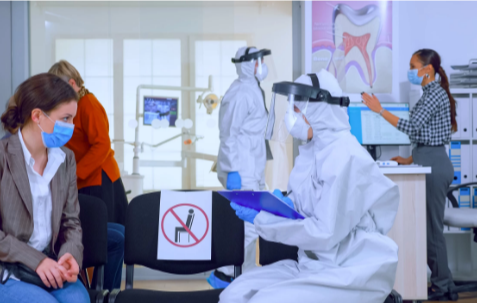The Role of Cleaning in Allergy Prevention for Students & Staff

Allergies in the educational environment are a growing concern, with a significant number of students and staff members affected by various triggers present within school premises. The importance of maintaining a clean and allergen-free environment cannot be overstated. Regular and thorough school cleaning in Sydney and other metropolitan areas has become an essential part of the management practices in schools, aiming to reduce the prevalence of allergy triggers.
Understanding Allergies in Schools
Allergies can range from mild to severe and are caused by an immune system reaction to typically harmless substances like pollen, dust mites, and pet dander. In a school setting, these allergens can be easily transferred via air or contact with surfaces. A critical step in minimising allergic reactions among the school population is regular cleaning.
The Impact of Allergens in Schools
For both students and staff, allergens can seriously impact daily activities. Allergic reactions can lead to a range of symptoms from sneezing, coughing, and itchy eyes to more serious asthma attacks. This not only affects the health and well-being of those afflicted but also impairs learning, teaching capabilities, and overall academic performance.
Key Areas in Allergy Prevention
When crafting a strategy for allergy prevention in schools, several key areas require attention. These include classrooms, common areas like halls and gyms, cafeterias, and any areas that house pets or plants. Identifying these high-risk zones is a crucial first step in controlling the spread of allergens.
Cleaning Protocols
Effective cleaning protocols systematically address these areas, ensuring they remain as dust-free and clean as possible. Surface cleaning to remove dust and allergens, the use of HEPA filters in vacuum cleaners, and the regular cleaning of air ducts contribute immensely to reducing the presence of airborne allergens.
The Role of Professional Cleaning Services
While daily cleaning performed by school staff plays a role in reducing allergens, professional cleaning services that specialize in school cleaning in Sydney bring a level of thoroughness and expertise that is hard to match. They can deploy advanced cleaning techniques and materials tailored specifically to allergen control.
Benefits of a Clean School Environment
A clean school environment does more than just prevent allergies; it promotes an overall healthier space for everyone. Regular disinfection reduces the spread of common illnesses, making it a safer place. This is particularly critical in times of viral outbreaks where cleanliness can halt the spread of infections.
Fostering a Healthy Learning Atmosphere
A well-maintained school not only safeguards against allergies and illness but also creates a conducive learning atmosphere. Clean, decluttered spaces are linked to reduced stress levels, improved concentration, and a better overall academic experience for students and teachers alike.
Training and Awareness
School administrations must prioritize both training for their cleaning staff and awareness for the broader school community. Knowing how to properly clean to reduce allergens, and understanding the implications of allergies, encourages a shared responsibility towards maintaining a healthy school environment.
Engagement with Parents and Students
Engaging with parents and students on the topic of allergies and cleaning promotes a community-wide effort. Informative sessions can help parents understand what measures they can take at home, while students learn the significance of maintaining cleanliness for themselves and their peers.
Responsive Cleaning Strategies
Each school has unique needs when it comes to cleaning and allergy prevention, shaped by its location, size, and the specific health requirements of its occupants. Therefore, cleaning protocols should be regularly reviewed and adjusted in response to feedback from the school community and seasonal changes that may affect allergen levels.
Adapting to Seasonal Variations
Seasonal changes often bring different allergens to the fore. A flexible approach to cleaning, which involves adjusting routines to be more intensive during high pollen seasons or damp weather that promotes mold growth, can significantly ease allergy symptoms.
Sustainable Cleaning Practices
While addressing allergens, it’s also essential to use sustainable and non-toxic cleaning products. Harsh chemicals can themselves be irritants or trigger allergic reactions. Therefore, schools should opt for environmentally friendly products that are effective but gentle for those with sensitivities.
Long-term Health Benefits
Investment in the healthiness of school environments through comprehensive cleaning practices offers long-term benefits. It contributes to the overall well-being of students and staff, potentially reducing absenteeism and healthcare costs due to allergic reactions or related illnesses.
Conclusion
Cleaning plays a fundamental role in allergy prevention within educational institutions. Professional school cleaning services in Sydney and beyond not only contribute to a safer, more inviting learning environment but also serve as a critical component in safeguarding the health of students and staff. Through systematic cleaning protocols, training, community engagement, and the adoption of green cleaning products, schools can significantly reduce allergen exposure and ensure a wholesome educational experience for all.





